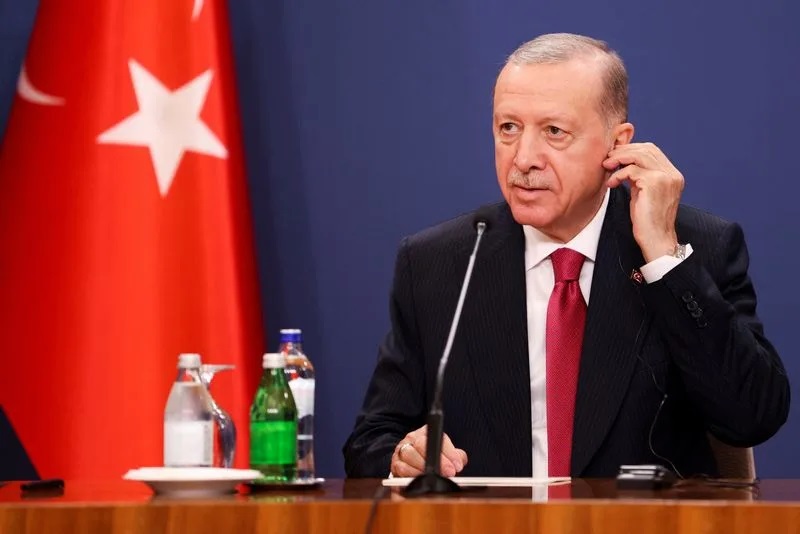President Tayyip Erdogan unveils Turkey's strategic vision to develop the "Steel Dome" advanced air defense system, aiming to strengthen the nation's multi-layered defense capabilities and bolster long-range missile systems.
Turkey Aims for Enhanced Air Defense Capabilities with "Steel Dome" System


Turkey Aims for Enhanced Air Defense Capabilities with "Steel Dome" System
In a recent announcement, President Tayyip Erdogan revealed Turkey's ambitious plans to develop its own advanced air defense system, dubbed the "Steel Dome." Erdogan emphasized Ankara's goal to bolster its multi-layered defense capabilities and enhance its long-range missile systems in the near future.
Turkey, a member of NATO, has made significant strides in reducing its reliance on external sources for defense equipment. The country has emerged as a key player in the global market for armed drones and has prioritized domestic production of its defense requirements.
During a ceremony in Ankara commemorating the introduction of the domestically-produced Gokbey helicopter for the gendarmerie, Erdogan drew parallels between Turkey's envisioned "Steel Dome" system and Israel's well-known "Iron Dome" defense system. Erdogan highlighted the critical importance of robust air defense systems for national security and expressed Turkey's determination to develop a system on par with the capabilities of other nations.
Emphasizing Turkey's commitment to achieving self-sufficiency in defense manufacturing, Erdogan underscored the strategic significance of the proposed "Steel Dome" air defense system. Drawing inspiration from Israel's successful deployment of the Iron Dome, Turkey aims to fortify its defenses and ensure protection against various airborne threats.
Erdogan did not specify a timeline for the development and implementation of the "Steel Dome" system but affirmed that Turkey would bolster its long-range missile capabilities concurrently. He reiterated Turkey's unwavering dedication to advancing its defense industry and asserted that the country would persist in its pursuit of complete independence in defense technology and production.
Israel's Iron Dome system, initiated in 2011, is designed to intercept incoming rockets and projectiles targeting Israeli territory. Utilizing radar-guided missiles mounted on truck-towed units, the Iron Dome effectively neutralizes short-range threats such as rockets, mortars, and drones by intercepting them in mid-air. Israel further extended the application of the Iron Dome by introducing a naval version in 2017 to safeguard maritime assets and vessels.
The decision to enhance Turkey's air defense capabilities aligns with the nation's strategic goals of fortifying its national security infrastructure and reducing vulnerabilities to potential threats. Erdogan's announcement underscores Turkey's proactive approach to modernizing its defense systems and underscores the country's commitment to self-reliance and technological advancement.
However, Turkey faced challenges in its defense industry due to sanctions imposed by the United States in December 2020. The sanctions were triggered by Turkey's purchase of Russia's S-400 missile defense system, which strained its relations with its NATO allies. The repercussions of the sanctions also led to Turkey's removal from the F-35 stealth fighter jet program, where it played a significant role as both a manufacturer and buyer.
As Turkey navigates through these challenges and works towards enhancing its defense capabilities, the pursuit of the "Steel Dome" air defense system represents a pivotal step in fostering indigenous defense production and reinforcing the country's security posture. By investing in innovative technologies and strengthening its defense infrastructure, Turkey aims to advance its standing in the global defense arena and safeguard its national interests effectively.

 বাংলা
বাংলা  Spanish
Spanish  Arabic
Arabic  French
French  Chinese
Chinese 